To avoid putting up with massive crowds at banking halls and ATMs, Nigerians who are looking for cash have to choose between paying heavy and cut-throat transaction fees to PoS operators.
The past eight weeks has been challenging and excruciating to say the least for Nigerians as people having thousands and millions of Naira deposited with the banks have been turned into active, corporate beggars for cash which has been described as the new ‘diamond’ in Nigeria.
Amid the scarcity of cash, Nigerians have had to cope with no payments from banks or Automated Teller Machines (ATMs), exorbitant charges from Point of Sale (PoS) agents, and failed bank apps.

Back story
The naira redesign policy was unveiled by the Central Bank of Nigeria (CBN) in October 2022.
The CBN ordered deposit money banks (DMBs) to stop issuing the new notes over the counter after the new naira notes were unveiled and released into circulation on December 15, 2022 after CBN Gov. Godwin Emefiele had presented the new notes to President Muhammadu Buhari at the Presidential Villa, Abuja.
The policy which is believed to be economically advantageous and beneficial in the long run, resulted in a severe cash shortage across the country and ultimately, socio-economic cataclysm.
Experts have argued that the policy which permitted the CBN to place an embargo on the circulation of old notes without providing sufficient quantity of the new notes triggered severe unprecedented cash shortages and grueling economic hardship.
The shortage continued despite the CBN ordering over-the-counter withdrawals of the new naira notes to shorten lines at ATMs and extending the deadline for the usage of old ones.
To avoid putting up with massive crowds at banking halls and ATMs, Nigerians who are looking for cash have to choose between paying heavy and cut-throat transaction fees to PoS operators. PoS operators were charging as high as N2,000 to N3,000 for every N10,000 withdrawal.
However, as the cash squeeze persisted and the duration period for the use of the old naira lapsed, most PoS operators ran out of business as they could not get access to the new notes like every other Nigerian. 80 percent of PoS operators were reported to have shut down due to the current cash shortage.
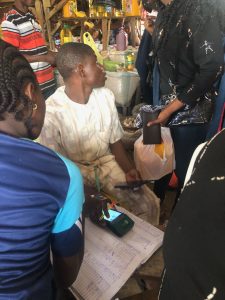
How PoS operators are cashing in on local markets
As the hardship and difficulties encountered by Nigerians on the prolonged cash crisis bites harder, local market traders had to look for a way to defy the odds by liaising with PoS operators who have now pitched their tents in various markets to ‘ease’ payment between local traders and customers who are now used to cashless transactions.
In as much as Nigerians want the naira shortage issue to stabilize, the same can’t be said about PoS operators who have been cashing out since the naira redesign policy began.
A visit by Persecondnews to the busy abattoir market in Kubwa, the Federal Capital Territory (FCT), showed so many PoS operators waving up their machines round the market looking for customers who want to pay for food items. They collect payment for as low as N200 from customers who want to pay for food items they buy.
Some customers were found clustering around a particular PoS operator, who for obvious reasons some of the traders prefer customers paying for their food items with him.
Approaching this particular operator, Persecondnews noticed that he had a book with him which he was using to write the names of all the traders whose food items where being paid for. Once the customers paid, they take their payment slips to the trader before collecting their food items.
Speaking with the PoS operator, Ismaila Gudu, noted that most of the traders preferred using his PoS machine because his network is fast and he doesn’t really experience network issues like most operators in the market.
“My network is usually very fast and I always have good network unlike other PoS operators you see around. Customers transfer the money with their cards into our account, and we transfer the money to traders accounts when they close,” he explained.
Speaking on why he writes down the names of the traders, he explained: “This will enable me to calculate each trader’s money and know how much I will transfer to them at the end of the day. They payment slip you give them is to enable them to also keep track of their money.
“We charge customers N50 per transaction for less than N1,000 and N100 for transactions from N1000 to N4,500; N150 or N200 for transactions from N5,000 above to N9,500. The charges increase depending on the amount paid and same charges apply when we are transferring to the traders too.”
Speaking on the profit he makes daily from his transactions, he disclosed that he makes between N3,000 to N6,000, depending on the days of the week and the number of transactions per day.
One of the traders, who sells varieties of vegetables, Bala Maikudi, revealed that their business was on the brink because most people did not have cash to pay for food items, and most of the traders were not accepting transfers.
“Our businesses were collapsing because people didn’t have cash to pay for foodstuff; some people were doing transfers but some transfers will take days to come and you won’t even get some even though the customer will claim the bank debited them.
“We were at a loss and It’s all these issues that made us resort to using POS for payments,” he explained.
The traders and customers, however, queried the federal government for invalidating the old naira notes as legal tender when it didn’t have enough new currencies in circulation.
“If the government wasn’t ready to provide the new naira notes in sufficient quantities, why stop the use of the old notes? This is no longer funny, the hardship is biting hard and frustrating.
“The old notes should continue to be used by the public since there is no sufficient new currencies in circulation,” a civil servant, Mrs. Chinwe Udoka, who came to buy foodstuff said.

Supreme Court ruling
Persecondnews recalls that the Supreme court had on March 3, 2023, ordered that old N200, N500 and N1000 notes should remain valid till December 31, 2023, citing defective timing and implementation as well as a violation of the 1999 Constitution.
This came shortly after 16 states of the Federation instituted a suit to challenge the legality of the introduction of the policy. The 16 states led by Kaduna, Kogi and Zamfara had prayed the apex court to void and set aside the policy on the grounds that it is inflicting hardships on innocent, poor Nigerians.
The Supreme Court subsequently ruled that President Muhammadu Buhari’s disobedience of its February 8, 2023, order amounts to dictatorship, adding that the President breached the Constitution of the Federation in the way he issued directives for the re-designing of the Naira by the CBN.
The apex court further went on to rule that the unconstitutional use of powers by the President on naira redesign has breached the fundamental rights of Nigerian citizens in various ways.
The justices urged the President to proclaim that all the currency notes, both old and new, should continue to be used by the public since there are no sufficient new currencies in circulation.

CBN mum after Supreme Court judgment
However, the Presidency, the CBN, and the Attorney General of the Federation remained silent following the Supreme Court’s ruling on March 3, bringing confusion among many bank customers and Nigerians because the apex court order runs counter to the President’s order of February 16 that old N500 and N1000 notes are banned but old N200 notes are still valid until April 10.
The Presidency, however, broke its silence on Monday, claiming that the President never instructed the CBN and the AGF to disregard the apex court’s ruling, adding that the President is “an absolute respecter of the rule of law.”
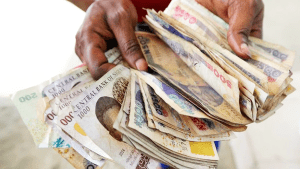
CBN finally bows to Pressure
10 days after the Supreme Court ruling that old naira notes should co-exist with new ones till the end of the year, the CBN on Monday, March 14, 2023, said old N200, N500, N1,000 banknotes remain legal tender till December 31, 2023.
The apex bank’s Acting Director of Corporate Communications, Isa AbdulMumin disclosed this in a statement on Monday.
“In compliance with the established tradition of obedience to court orders and sustenance of the Rule of Law Principle that characterized the government of President Muhammadu Buhari, and by extension, the operations of the Central Bank of Nigeria (CBN), as a regulator, Deposit Money Banks (DMB) operating in Nigeria have been directed to comply with the Supreme Court ruling of March 3, 2023.
“Accordingly, the CBN met with the Bankers’ Committee and has directed that the old N200, N500 and N1000 banknotes remain legal tender alongside the redesigned banknotes till December 31, 2023.
“Consequently, all concerned are directed to conform accordingly,” the statement said.
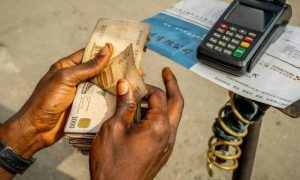
CBN bars agents from using PoS terminals for transactions
The CBN barred agents from using Point of Sale (PoS) terminals meant for merchants to carry out cash-in and cash-out transactions.
Among several other restrictions, the CBN also warned agents against carrying out a transaction where a receipt or acknowledgment cannot be generated.
The apex bank disclosed this in a circular announcing the Exposure Draft of the Regulatory Framework for Agent Banking in Nigeria.
Persecondnews reports that agent banking is a financial inclusion service which the bank has adopted to extend retail reach across all segments.
This service include First Monie, EcoBank express, UBA Moni, Zenith mobile money, Monniepoint, among several others.
According to the CBN, the agent banking initiative has resulted in the proliferation of financial services agents across Nigeria, resulting in a significant and growing portion of financial transactions being conducted through the agents.
“This has necessitated the review of agent banking regulations to streamline activities in agent banking while ensuring that appropriate risk mitigation measures are taken by stakeholders”, the apex bank stated in a circular.
With the pronouncement by both President Buhari and the CBN that the old naira notes remain legal tender till December 31, 2023, and the banning of PoS terminals for transactions, it may be time up for PoS operators across the country who were making humongous profits from the cash shortage.












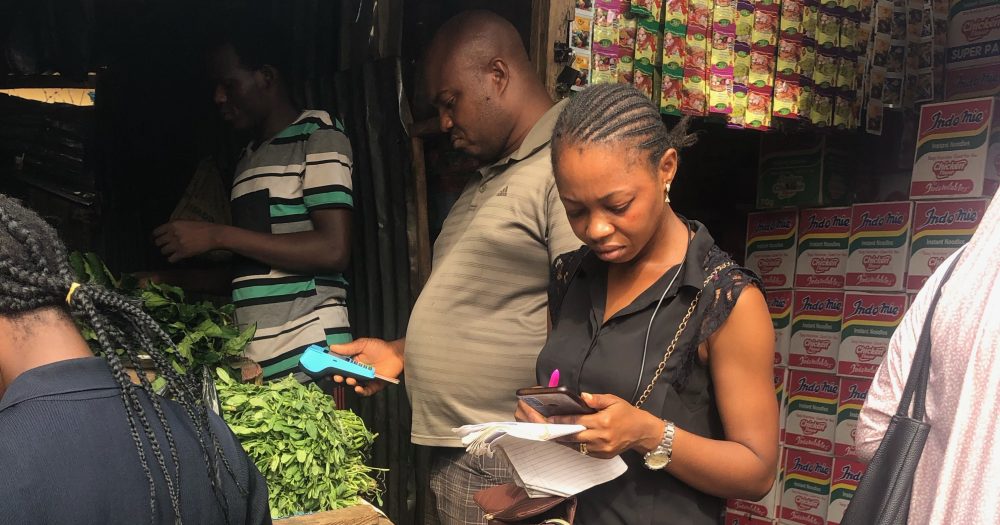







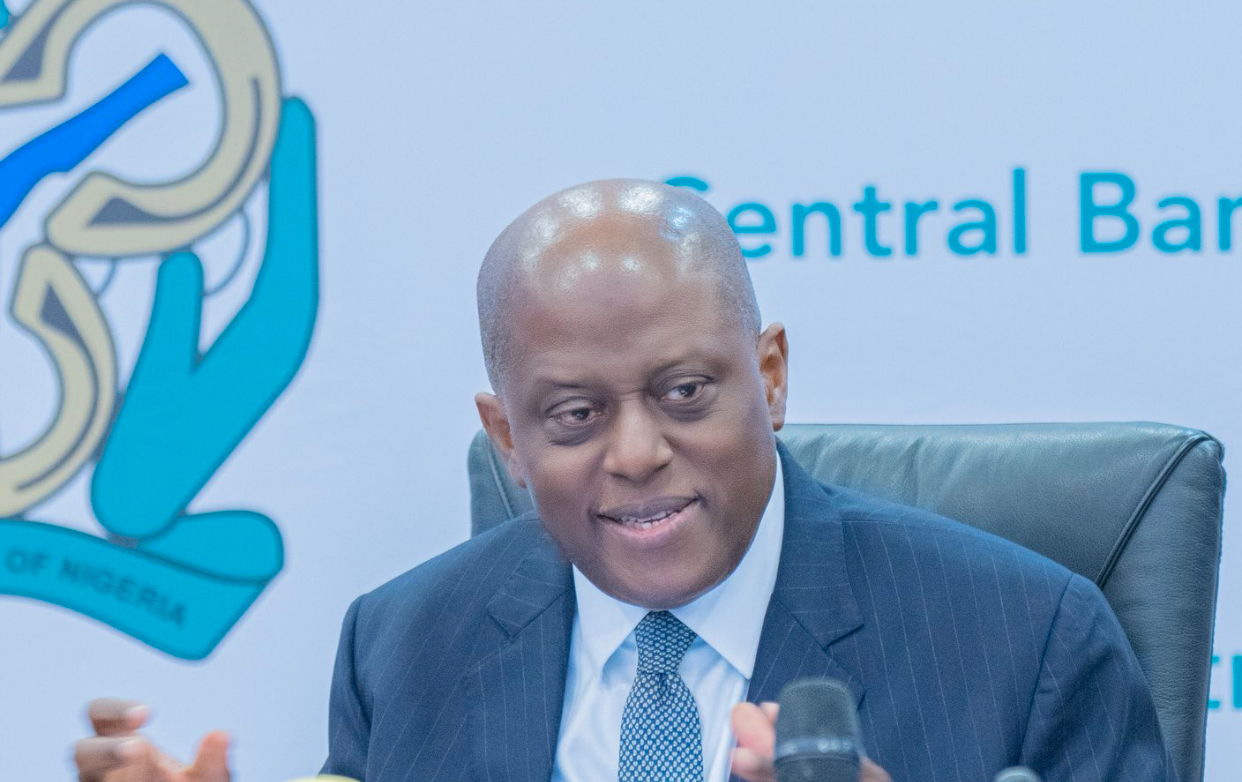



Leave a comment